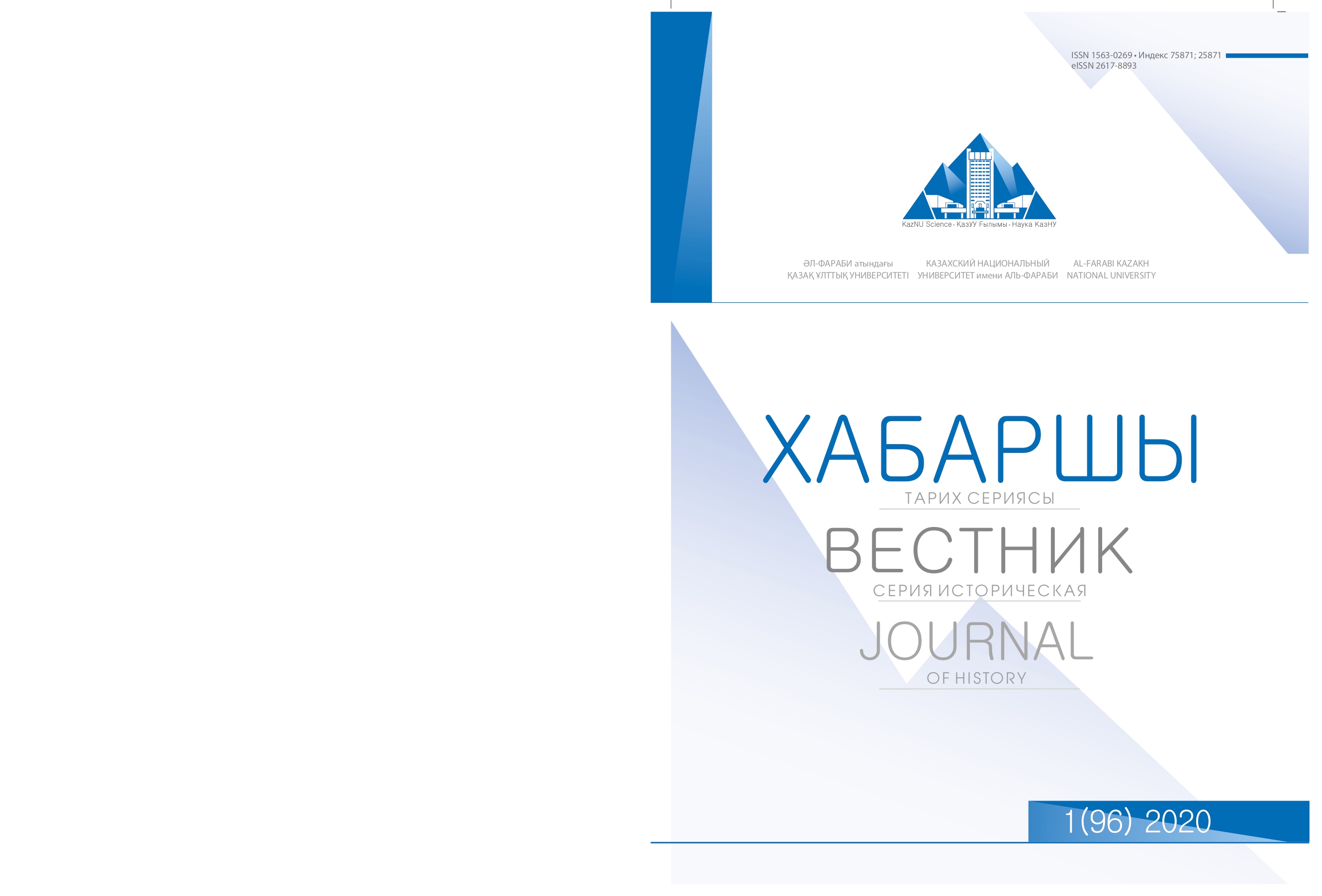THE POLICY OF THE RUSSIAN EMPIRE AGAINST THE TURKS OF ANATOLIA IN TURKESTAN (second half of the XIX and early XX centuries)
DOI:
https://doi.org/10.26577/JH.2020.v96.i1.08Abstract
With the strengthening of the colonial system in the Turkestan region, the tsarist administration
tightened control over the Turkic-Muslim peoples of the region. At the end of the 19th century and
especially at the beginning of the 20th century, new-method schools were opened in Turkestan, which
later became the founders of the idea of unity of the Turkic peoples. According to intelligence information,
during the study period, citizens of the Ottoman state were actively involved in the region
and were subjected to political persecution. The imperial administration promptly studied the scale
of the propaganda work of Turkish agents in the region, the degree to which the ideas of Turkism
and Islamism penetrated into the consciousness of the indigenous Turkic-Muslim population. From
the information provided by the agents, it follows that after the Young Turk revolution in Turkestan
governorship, the Bukhara emirate and the Khiva khanate, the work of Turkish residents aimed at anti-
Russian propaganda, pan-Turkism and pan-Islamism was significantly intensified. Having studied the
main materials, the author carries out a comparative analysis of archival ametriles and comes to the
conclusion that the subjects of the Ottoman state carried out Muslim educational activities, promoted
Islam and the idea of unity of the Turkic-Muslim peoples. Their activities were based on cultural,
linguistic and historical principles. Thus, this article sets the goal of disclosing certain aspects of the
activities of citizens of the Ottoman state in the Turkestan governor-general on the basis of intelligence
information of the tsarist administration.




